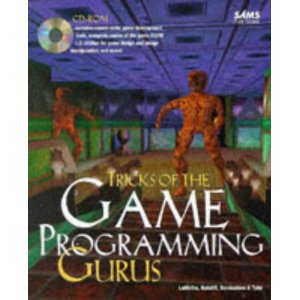At this point, I don’t think I want to put the effort in to process and comment extensively on Girard’s The Scapegoat. I actually had more trouble with it than his previous works and I think it is due to the rather stilted translation from the French this time around. Still, the book is an important contribution as he spends several chapters elaborating on certain aspects of mimetic theory that don’t get thorough attention in his other works.
I’ve posted a few of my favorite passages below, with a few notes. Most of these need more context to make sense.
—
Persecutors always believe in the excellence of their cause, but in reality they hate without a cause. The absence of cause in the accusation (ad causam) is never seen by the persecutors. It is this illusion that must first be addressed if we are to release all the unfortunate from their invisible prison, from the dark underground in which they are stagnating but which they regard as the most magnificent of palaces.
-Rene Girard, The Scapegoat, p.103
That really punches some holes in “just war theory” if you ask me.
—
On our astounding hesitancy to discuss or investigate the atrocities of Stalin, which were far worse than the Holocaust:
How can we be surprised that they have waited fifty years or more before making discreet inquiries into the greatest persecutions in human history. Mythology is the very best school in the training of silence. [That is, covering up what really happened.] We never hesitate between the Bible and mythology. We are classicists first, romantics second, and primitives when necessary, modernists with a fury, neoprimitives when we are disgusted with modernism, gnostics always, but biblical never.
The causality of magic is one with mythology, so the importantce of its denial cannot be exaggerated. The Gospels are certainly aware of this since the denial is repeated at every possible opportunity. they even put it in the mouth of Pilate, who says, after interrogating Jesus, “I find no case against this man.” (“Je ne vois pas de cause.”) Pilate has not yet been influenced by the crowd, and the judge in him, the incarnation of Roman law of legal rationality, acknowledges the facts in a brief but significant moment.
-p.105
For just a sec there, Pilate was not caught up in the contagion, the Satanic crowd of collective violence. He saw that Jesus was innocent. But then he was swept away. Today, we need to listen to the holy spirit and not be swept away in violence and shunning.
—
The magician of mythologies and religions has a very good audience in our structuralists.
-p.73
Girard here is saying that structural analysis of literature is vulnerable to deception by the devil. Yes, he really says stuff like that. I think Lewis might agree!
—
There is…a history of mythology. Mythology eliminates collective murder but does not reinvent it, because all evidence indicates it was not invented in the first place. Collective violence persists but is declared evil akin to cannibalism… violence is attributes to an older mythological generation and to a religious system now seen to be “barbarous” and “primitive.”
-p.74
In this passage and others, Girard has some very interesting commentary on how we tend to amplify the sins of our fathers and ancestors, while downplaying our own, even though they are exactly the same sins.
—
The essential factor in the Gospel use of parable is Jesus’ willingness to be imprisoned within the representation of persecution from the persecutors’ standpoint, and to do so for the sake of his listeners who cannot understand any other viewpoint, since they are prisoners of it themselves. Jesus uses the resources of the system in such a way as to warn people of what awaits them in the only language they understand.
-p.186
—
More here on the usual way society fails to stayed glued together:
“Every kingdom divided against itself is heading for ruin, and every city or house, divided against itself”. The repetition of “every” emphasizes the impression of symmetry among all the forms of community mentioned here. The text enumerates all the human societies, from the greatest to the smallest, the kingdom, the city, the house. For reasons that at first elude us, care is taken not to omit any category, and the repetition of every underlines that intention even more, although its importance is not apparent, immediately. This is not fortuitous or an accident of style that has no relation to the meaning. There is a second meaning that cannot escape us.
The text is, in fact, insisting that all kingdoms, all cities, and all houses are divided against themselves. In other words all human communities without exception are based on the one principle, both constructive and destructing, that is found in the second sentence; these are all examples of the kingdom of Satan.
Why should the spiritual sons, the disciples and imitators, become judges of their masters and models? The [Greek] word for judges is kirtai; it evokes the idea of crisis and division. Under the effect of mimetic escalation, the internal division of every “satanic” community is exacerbated; the difference between legitimate and illegitimate violence diminishes, expulsions become reciprocal; sons repeat and reinforce the violence of their fathers with even more deplorable results for everybody; finally they understand the evil of the paternal example and curse their own fathers. They pass negative judgment, as implied by the word kritai, on everything that precedes them just as we do today.
-p.188
The Gospel though can return “the hearts of the fathers to their children and the hearts of the children to their fathers.” (Malachi 4:6)
—
The truth offered to mankind unleashes the forces of Satan, the destructive mimeticism, by taking away its power of self-regulation. The fundamental ambiguity of Satan makes divine action superficially ambiguous. Jesus brings war into the divided world of Satan because, fundamentally, he brings peace. People do not or pretend not to understand this.
-p.191
That make any sense? Of course not. The chapter as a whole does though, astoundingly so. I’ll say it again: Girard is impossible to work into an elevator pitch. Someone really needs to try to explain this again, and not in French.
—
A careful reading of the Gospels shows us that Jesus prefers the language of skandalon to that of the demonic while the opposite is true for the disciples and editors of the Gospels. We should therefore not be surprised to find a certain contrast between the fulgurating words attributed to Jesus, which are often not very coherent, and the narrative passages, particularly the accounts of the miracles, which are better organized from a literary perspective but lag somewhat behind the thought the emerges from the direct quotations.
-p.194
I’m sure it will upset some fundy folks who like to imagine the bible as a magic book written in an inspired trance and not penned by actual human beings, but I really like how Girard discusses the Gospel writers as “editors” of the accounts of Jesus. He likes to point out how their narrative differs in meaning sometime from Jesus’ actual quotations. He makes a pretty good case that the apostles didn’t fully understand what Jesus was talking about sometimes. The bible tells us this explicitly – that the disciples were often clueless when Jesus was still with them, but we sometimes assume that by the time they wrote it all down a few years later, they had it 100% figured out. But no – they were still realizing the full implications of the Kingdom of God. They continued to mature – as do we today. Jesus’ words still hold new treasure.





